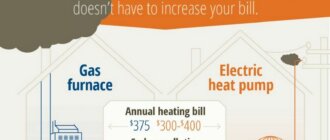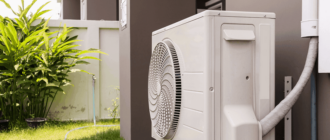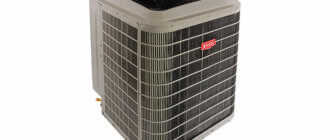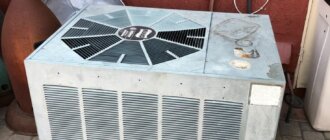7 Ways Spring Cleaning Can Reduce Your Energy Bill
Understanding Your Energy Bill
Your energy bill is a crucial document that provides you with valuable information about your household’s energy consumption. When you understand how to read and interpret this document, you can take steps towards reducing your energy usage and lowering your utility bills.
- The billing cycle period: This period refers to the length of time covered by each bill, usually ranging from 30-90 days.
- Meter readings: Check the meter readings for each month within this period, as these provide an accurate measure of how much electricity or gas was consumed.
- Various charges: These may include fixed service fees, taxes, delivery charges, and variable rates based on usage levels.
- Online platforms: Most utility companies offer online platforms where customers can access detailed information about their consumption habits over time through graphs or charts.
Main Factors Affecting Energy Consumption
There are several factors that affect energy consumption in our homes. Understanding these factors can help you identify areas where you may be wasting energy and how to reduce your overall energy bill.
- Age of your home: Older homes tend to have less insulation, outdated wiring systems, and older appliances that consume more electricity than newer models.
- Size of your home: A larger home requires more heating and cooling, which can significantly increase your utility bills.
- Type of lighting used: Incandescent bulbs use far more electricity than LED or CFL bulbs, which are much more efficient and last longer.
- Daily habits: Leaving electronics on standby mode, overheating water heaters, running multiple appliances at once, all contribute to increased power usage.
- Weather conditions: Extreme temperatures can cause HVAC systems to work harder, resulting in higher bills, while natural light during springtime helps cut down on artificial lighting needs.
The Impact of Spring Cleaning on Energy Consumption
Spring cleaning is not just about decluttering and organizing your home; it can also have a significant impact on reducing your energy consumption. When you clean and maintain your appliances and systems, you ensure they are running efficiently, which translates to lower energy bills.
One of the main benefits of spring cleaning is improved air quality in your home. Dust buildup in HVAC filters can cause them to work harder than necessary, increasing energy consumption. Regularly replacing or cleaning these filters helps improve airflow and reduces the load on your HVAC system.
Cleaning windows and doors can also help reduce energy usage by ensuring that there are no gaps or leaks where air can escape from or enter into the house. This means less need for heating or cooling as outdoor temperatures fluctuate throughout the day.
Refrigerators and freezers are among the biggest energy consumers in most households. By defrosting them regularly and removing any food debris buildup around coils and fan blades, you help them run more efficiently, minimizing their overall power usage.
Spring cleaning encourages natural light use through opening blinds/curtains during daytime hours instead of relying exclusively on artificial lighting sources. Natural light provides warmth while at the same time saving money otherwise spent on electricity bills for powering light bulbs.
Spring cleaning has many benefits that go beyond just a tidy living space, with reducing power bills being one of its advantages due to efficient functioning household appliances/systems coupled with optimized spaces, all leading to long-term cost savings!
7 Spring Cleaning Tips to Lower Your Energy Bill
Now that we have discussed the factors affecting energy consumption and how spring cleaning can reduce your energy bill, let’s dive into some practical tips to help you achieve this goal. Here are seven spring cleaning tips to lower your energy bill:
- Clean and Service Your HVAC System: Regular maintenance of your heating, ventilation, and air conditioning (HVAC) system can improve its efficiency by up to 15%. This includes cleaning or replacing filters, checking ductwork for leaks, and ensuring proper airflow.
- Seal Windows and Doors: Sealing gaps around windows and doors with weatherstripping or caulk can prevent drafts that waste energy. This is especially important in older homes that may not have adequate insulation.
- Dust Light Fixtures and Replace Bulbs: Dirty light fixtures can block up to 50% of the light they emit. Dusting them regularly will allow more light to shine through, while changing old bulbs with LED bulbs will save significant amounts of electricity.
- Clean and Defrost Your Fridge and Freezer: A dirty fridge or freezer has poor airflow, which means it uses more energy than necessary to keep food cool or frozen. Regular defrosting helps maintain an optimal internal temperature.
- Use Natural Light and Ventilation: Open curtains during daylight hours instead of using artificial lighting. Use fans instead of air conditioning where possible, as natural breezes are very effective at cooling homes down naturally.
- Declutter and Optimize Space: Removing clutter from your home makes it easier for air circulation, reducing the need for air conditioners and saving on utility bills.
- Install Energy-Efficient Appliances: Upgrading old appliances like washing machines and dryers can cut down on electrical usage substantially, thus reducing monthly bills.
These simple spring cleaning tips will help you reduce your energy consumption significantly without sacrificing comfort or convenience in any way!
The Bigger Picture: Benefits of Energy Efficiency
Energy efficiency goes beyond just reducing your energy bills. It also has a significant impact on the environment and society as a whole. By using less energy, we can reduce our carbon footprint and help combat climate change.
In addition to being environmentally responsible, energy efficiency also promotes sustainability by conserving natural resources such as oil, gas, coal, and water that are used to generate electricity.
Moreover, it creates job opportunities in industries related to renewable energy sources like solar panels or wind turbines. These industries require specialized skills that can create new employment opportunities for workers.
Furthermore, adopting an energy-efficient lifestyle can improve the quality of life for individuals by creating healthier indoor environments with better air quality. This is especially important for people with respiratory problems or allergies.
Lastly, promoting energy efficiency helps countries become more self-sufficient in terms of their power generation capacity. Dependence on foreign fuel sources can leave countries vulnerable during times of political instability or economic crisis.
There are numerous benefits to prioritizing energy efficiency in our homes and communities beyond saving money on utility bills.
Cost Savings
When it comes to energy consumption, the cost savings associated with reducing your usage can be significant. By implementing the spring cleaning tips outlined in this article, you can lower your monthly utility bills and enjoy more money in your pocket.
One of the most effective ways to save on energy costs is by ensuring that your HVAC system is running efficiently. A well-maintained system will use less energy and reduce strain on its components, leading to fewer repairs and replacements over time.
Another way to save money is by sealing up any gaps or leaks around windows and doors. This simple step can prevent drafts from entering your home, which means that you won’t need to turn up the heat as high during colder months.
Cleaning light fixtures regularly can also help you save money. Dust buildup can reduce their efficiency and cause them to consume more energy than necessary. Replacing old bulbs with newer LED models can also help cut down on electricity usage.
Decluttering your living space not only makes for a tidier home but also helps optimize airflow throughout each room. This allows for natural ventilation without needing fans or air conditioning units running unnecessarily.
By following these tips and adopting other energy-efficient practices into your daily routine, you’ll find yourself pleasantly surprised at how much money you could potentially save on utilities every month!
Conclusion
Spring cleaning is not only beneficial for the sake of tidiness and organization but also plays a significant role in reducing energy consumption. By following the above tips and making small adjustments to your home, you can see a considerable reduction in your energy bill.
It’s vital to consider that energy efficiency is not just about cost savings but also contributes significantly to environmental conservation efforts. So apart from saving money on utility bills, adopting sustainable habits through spring cleaning can help make a difference in the world we live in.
Therefore, embrace spring cleaning with open arms this year with these handy tips that will undoubtedly give your home an eco-friendly makeover while keeping more bucks in your wallet!
Recent Queries:





